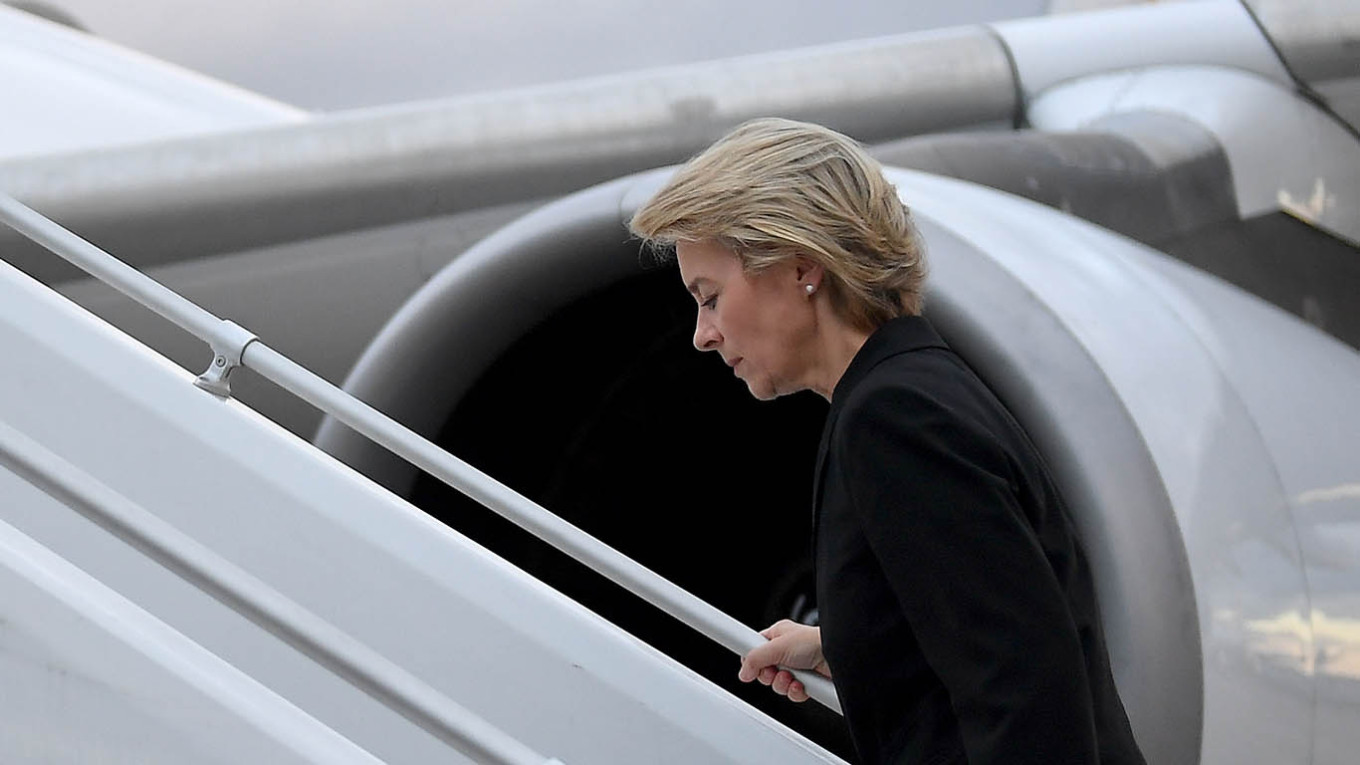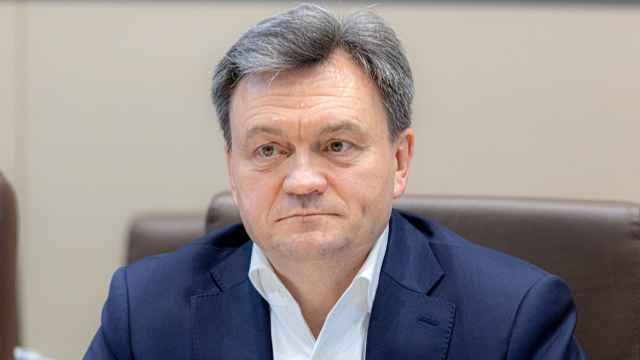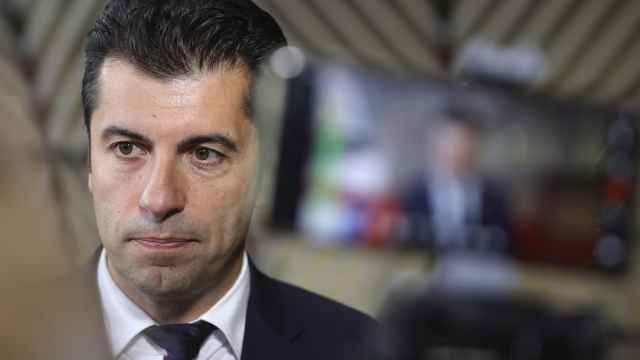A plane carrying EU chief Ursula von der Leyen was hit by GPS jamming as it readied to land in Bulgaria, with Russia suspected to be behind the incident, the European Commission said Monday.
The commission said Bulgarian authorities believed Russia was responsible for the jamming, which happened on Sunday, but it was not clear whether the aircraft was deliberately targeted, as similar incidents are common in the region.
"We can indeed confirm that there was GPS jamming," commission spokeswoman Arianna Podesta said at a press conference.
The chartered flight landed safely at Plovdiv International Airport, in the south of the country, without having to change route, she added.
Von der Leyen was in Bulgaria as part of a seven-country tour of "frontline" EU states, which, sitting on the bloc's eastern flank, are more exposed to what European officials describe as Russian hybrid threats.
The region has experienced "a lot of such jamming and spoofing activities," a different commission spokesperson said, adding that the EU has sanctioned several companies believed to be involved.
The incident was confirmed by the Bulgarian government, which said in a statement that, "to ensure the flight's safety, air control services immediately offered an alternative landing method using terrestrial navigation tools."
The Financial Times, which first reported the jamming, said the plane was forced to land using paper maps.
The European Commission described von der Leyen's trip as a show of support for EU members "facing the challenges" of being located near Russia and its ally Belarus.
"Threats and intimidations [are a] regular component of Russia's hostile behavior," Podesta said on Monday. "Of course, this will only reinforce even further our unshakable commitment to ramp up defence capabilities and support for Ukraine."
A Message from The Moscow Times:
Dear readers,
We are facing unprecedented challenges. Russia's Prosecutor General's Office has designated The Moscow Times as an "undesirable" organization, criminalizing our work and putting our staff at risk of prosecution. This follows our earlier unjust labeling as a "foreign agent."
These actions are direct attempts to silence independent journalism in Russia. The authorities claim our work "discredits the decisions of the Russian leadership." We see things differently: we strive to provide accurate, unbiased reporting on Russia.
We, the journalists of The Moscow Times, refuse to be silenced. But to continue our work, we need your help.
Your support, no matter how small, makes a world of difference. If you can, please support us monthly starting from just $2. It's quick to set up, and every contribution makes a significant impact.
By supporting The Moscow Times, you're defending open, independent journalism in the face of repression. Thank you for standing with us.
Remind me later.






